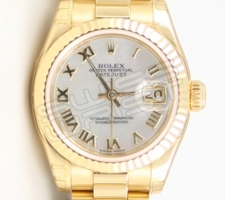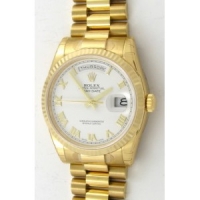Nate loved his Rolex and learned that every other Rolex-wearer felt the same. I remember a moment when the two of us were sitting on an ice cold bleacher-bench in a local park, watching Little League baseball on a winter-like spring day. The lady on the other side of him was bragging loudly to her friend about her new Rolex watch, a gold version she said had cost thousands. I knew that was true, having had my own gold Rolex several years before.
As I listened to her bragging, I was awash in regret for having carelessly lost my watch. “Lucky her,” I thought. “She’s still got hers.”
Then Nate leaned over and whispered, “That’s not a Rolex.”
“What?” I said, confused by his comment. Her watch looked exactly like mine, and of course she was vouching for it.
“It’s a knock-off,” he said.
“How can you tell?”
“The hands. Her second hand is jumping with each tick. On a real Rolex it sweeps.”
I was impressed he knew that, and suddenly unimpressed with the woman’s bragging. It’s possible her watch was a gift and she didn’t know she’d been given a fake, but whatever the case, all the boasting in the world wasn’t going to turn that counterfeit into the genuine article.
Apparently every designer product made these days has a knock-off version at a radically discounted price. I could buy a $2000 “Prada” bag for only $155 or a pair of “Louboutin” high heels worth $2400 for only $68. Of course just as Nate recognized the fake Rolex, a Prada or Louboutin fan could quickly pick out the imitation.
That got me thinking about people, especially those of us who claim to be Christians. We’ve all known church attenders who parroted the right spiritual lingo, i.e. wore the right label, but who didn’t live out the philosophy behind it. Truth be told, we’ve all done it now and then. But just as a child can sense when an adult doesn’t like him, non-Christians know when someone is a “knock-off believer” trying to fake faith.
Scripture indicates that God doesn’t think much of that, which forces me to examine the validity of my own faith in him. Are there parts of it that aren’t genuine? Am I sometimes a phony Christian, acting one way but thinking another? Two-faced behavior like that amounts to a double standard in God’s opinion and is a serious offense to him. It’s important for me to examine my thoughts and actions carefully and rout out any inconsistencies. I absolutely want to be the genuine article.
Although Nate loved his Rolex, several years after he received it, he put it in a drawer. Believing it was too ostentatious as we struggled to put food on our family table, he felt uncomfortable wearing it and went back to his Walmart watch.
And after that, if any Rolex-wearer noticed his timepiece was low-cost or low-class, that was just fine with him.
“Who is wise and understanding among you? Let him show it by his good life, by deeds done in the humility that comes from wisdom.” (James 3:13)





